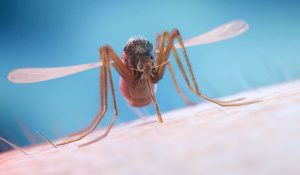Even light smokers are much more likely to die of lung disease or lung cancer than nonsmokers, a new study warns.
“Everyone knows that smoking is bad for you, but it’s easy to assume that if you only smoke a little, the risks won’t be too high,” said study co-leader Pallavi Balte, of Columbia University Irving Medical Center, in New York City.
The new study shows how wrong that thinking can be. It included nearly 19,000 people in the United States, average age 61, who were followed for an average of 17 years. During that time, nearly 650 died of lung disease (such as emphysema) and 560 died of lung cancer.
Among nonsmokers, less than 2% died from lung disease and less than 1% died from lung cancer. But among social smokers (fewer than 10 cigarettes a day), those numbers were over 3% and close to 5%, respectively.
Not surprisingly, heavy smokers (more than 20 cigarettes a day) fared worst, with more than 10% dying from lung disease and about 13% from lung cancer, the study found.
After accounting for other potential factors — such as age, sex, race, level of education and body weight — the researchers concluded that social smokers were 2.5 times more likely to die of lung disease and 8.6 times more likely to die of lung cancer than nonsmokers.
Social smokers had around half the rate of death from lung disease as heavy smokers, but their rate of lung cancer death was two-thirds that of heavy smokers, according to the study.
The results were scheduled for presentation at a virtual meeting of the European Respiratory Society. Data and conclusions presented at meetings should be considered preliminary until peer-reviewed.
The findings show that cutting down on smoking is no substitute for quitting, the researchers concluded.
“Previous research suggests that people are cutting down on smoking. For example, in the U.S.A., the proportion of smokers smoking less than 10 cigarettes per day has increased from 16% to 27%,” Balte said in a society news release.
“You might think that if you only smoke a few cigarettes a day you are avoiding most of the risk. But our findings suggest that social smoking is disproportionately harmful,” Balte said.
If you don’t want to die of lung cancer or respiratory disease, the best action is to quit completely, she added.
More information
The U.S. Centers for Disease Control and Prevention offers a guide for quitting smoking.
Copyright © 2024 HealthDay. All rights reserved.













-300x200.jpeg)
-300x213.jpeg)










